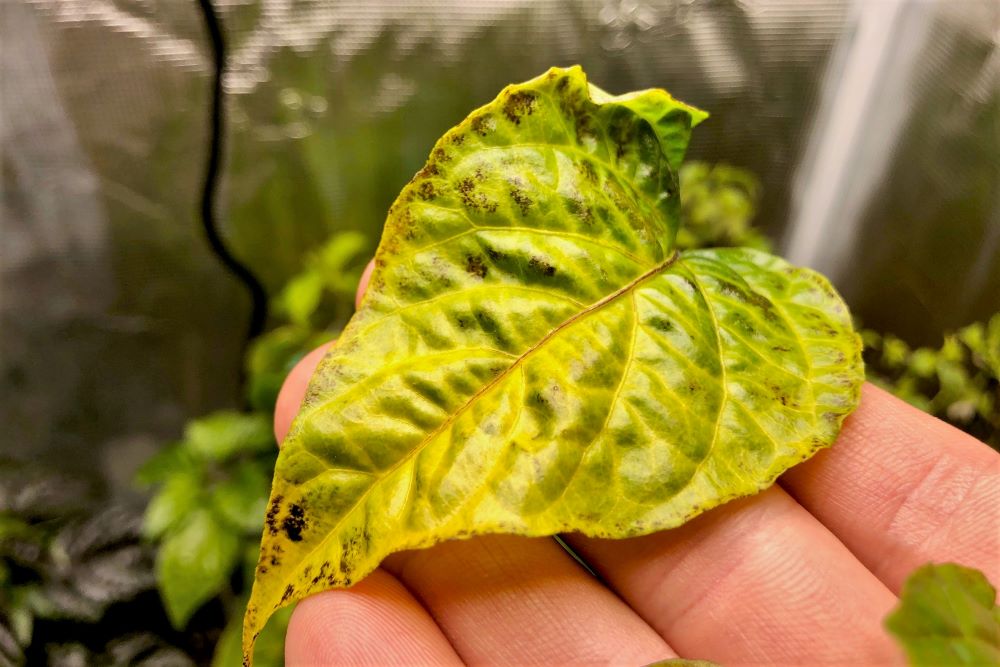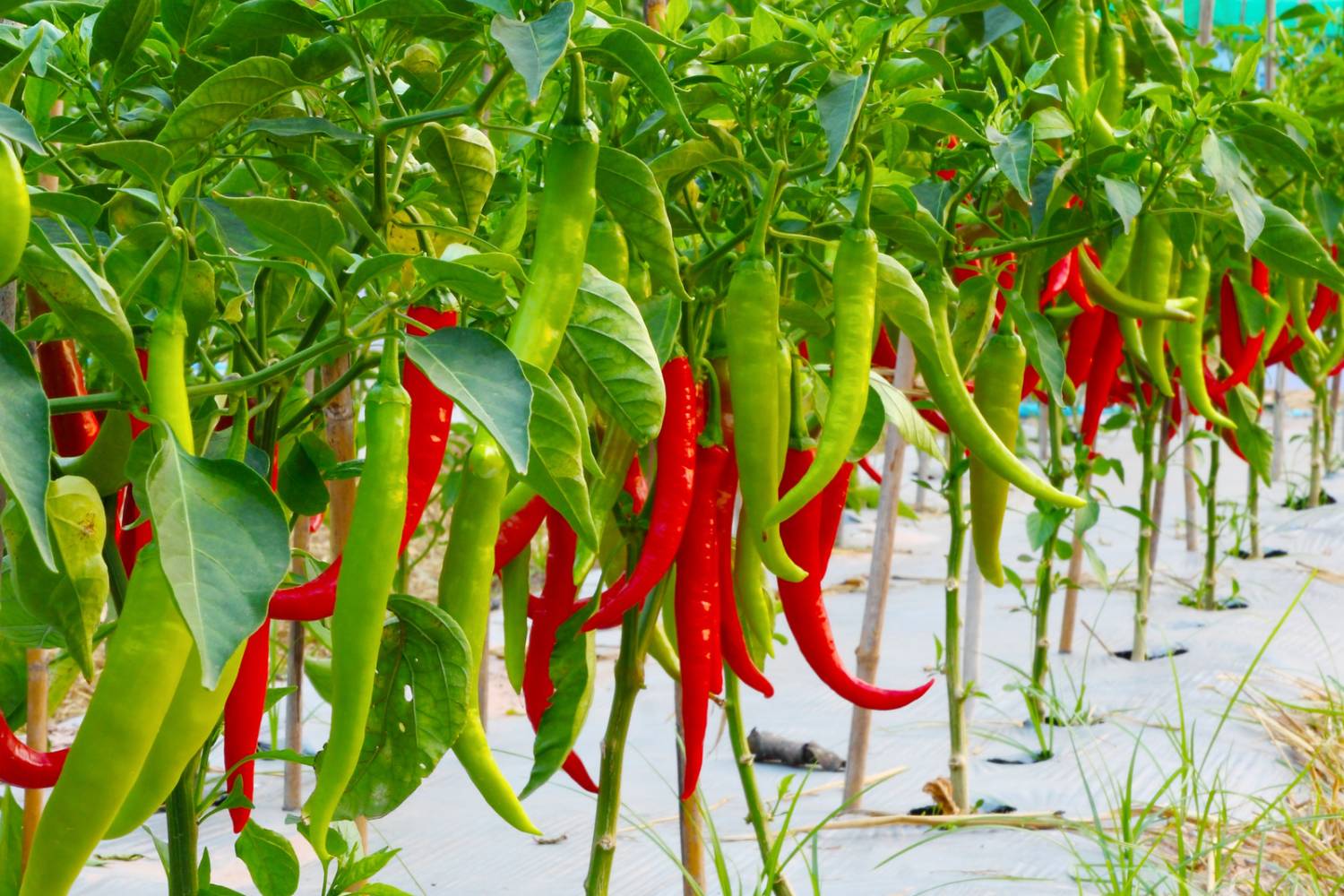Best Fertilizers for Peppers: Boost Development and Taste Naturally
Best Fertilizers for Peppers: Boost Development and Taste Naturally
Blog Article
How Fertilizers Play a Vital Role in Growing Healthy and Bountiful Pepper Crops
Plant foods function as the foundation of effective pepper cultivation, using a tactical technique to nurturing the soil and promoting optimal plant growth. The intricate dance between crucial nutrients and the pepper plants' physical processes underscores the pivotal role that fertilizers play in guaranteeing a bountiful harvest. From fueling durable root development to strengthening disease resistance, the influence of plant foods is far-reaching in the farming of healthy and balanced and productive pepper crops. Remain tuned to discover the nuanced means in which fertilizers add to the prospering of pepper plants and the sustainable practices that underpin their efficiency.
Significance of Nutrient-Rich Plant Foods
The utilization of nutrient-rich plant foods plays a pivotal role in boosting the efficiency and high quality of pepper crops in modern agricultural practices. Phosphorus, potassium, and nitrogen are main nutrients that are critical for the development and development of pepper plants.
Poor levels of these nutrients can lead to stunted growth, decreased returns, and sensitivity to illness (best fertilizers for peppers). Nutrient-rich plant foods offer a targeted service to make sure that pepper plants get the needed elements for optimal growth and productivity. Additionally, these plant foods help enhance soil fertility in time, producing a lasting setting for long-term pepper farming
Enhancing Plant Growth and Growth
To maximize plant growth and development in pepper crops, critical application of nutrient-rich fertilizers is crucial. Fertilizers play an important function in improving the general health and wellness and productivity of pepper plants by providing them with vital nutrients that may be doing not have in the soil.
In addition to these macronutrients, trace elements such as iron, zinc, and magnesium are additionally crucial for the appropriate functioning of different plant procedures. Iron, for example, is necessary for chlorophyll production, which is essential for photosynthesis and overall plant development. Zinc plays a crucial role in enzyme task and hormonal agent synthesis, affecting plant development and advancement at a mobile level. Magnesium is vital for the development of chlorophyll and total energy transfer within the plant.

Boosting Illness Resistance With Fertilizers
By purposefully including targeted fertilizers, farmers can strengthen the disease resistance of pepper plants, ensuring optimal plant health and wellness and productivity. Fertilizers including crucial nutrients like potassium, nitrogen, and phosphorus play an essential function in enhancing pepper plants' body immune systems, making them extra resistant to various diseases. Nitrogen, for example, help in the manufacturing of proteins that are vital for plant defense reaction. Phosphorus adds to root growth, making it possible for plants to much better take in nutrients and water, hence enhancing their capacity to ward off conditions. Potassium controls processes that enhance overall plant health, making peppers extra durable versus pathogens.

Optimizing Pepper Yield With Fertilizing
Making use of a balanced fertilization method is essential to accomplishing optimum pepper yield and ensuring ideal crop performance. By supplying peppers with discover this info here the best nutrients at the correct time, farmers can significantly improve their yield potential. Nitrogen, potassium, and phosphorus are important aspects for pepper growth, with nitrogen aiding in leaf and stem development, phosphorus sustaining root development and flower development, and potassium advertising general plant wellness.
To maximize pepper yield, it is essential to carry out soil tests to determine existing vitamins and mineral degrees and recognize any shortages that need to be dealt with. Based upon these results, farmers can establish a customized fertilization plan that fulfills the certain needs of their pepper crops. In addition, proper fertilization methods such as split applications throughout the expanding season can guarantee continuous vitamins and mineral availability for the plants.

Lasting Plant Food Practices for Peppers
In considering sustainable plant food practices for peppers, it review is imperative to concentrate on long-term soil health and ecological stewardship in conjunction with optimizing crop productivity. One vital method is the use of organic fertilizers such as garden compost, manure, or cover crops, which not only provide important nutrients to the peppers but additionally contribute to dirt structure and microbial activity. best fertilizers for peppers.
Furthermore, precision farming methods, such as soil screening and targeted nutrient applications, can aid enhance fertilizer usage, making sure that peppers receive the nutrients they require without excess drainage right into rivers. This not only benefits the atmosphere by lowering contamination yet additionally saves expenses for farmers by minimizing waste. By embracing lasting plant food techniques, pepper farmers can secure the wellness of their crops, soil, and bordering communities for future generations.
Final Thought
In final thought, plant foods are essential for cultivating plentiful and healthy and balanced pepper plants. best fertilizers for peppers. They supply needed nutrients for plant growth and growth, increase illness resistance, and maximize return. By carrying out sustainable fertilizer techniques, farmers can make sure the lasting health of their pepper crops and contribute to an extra environmentally-friendly and effective farming system
The elaborate dancing linked here in between important nutrients and the pepper plants' physical processes emphasizes the essential duty that fertilizers play in ensuring an abundant harvest.To maximize plant growth and growth in pepper plants, strategic application of nutrient-rich plant foods is important. Fertilizers play a crucial role in boosting the total wellness and performance of pepper plants by offering them with important nutrients that might be lacking in the soil.By strategically incorporating targeted plant foods, farmers can strengthen the condition resistance of pepper crops, making sure optimal plant wellness and efficiency. Plant foods having essential nutrients like phosphorus, potassium, and nitrogen play an essential function in enhancing pepper plants' immune systems, making them much more resilient to numerous conditions.
Report this page